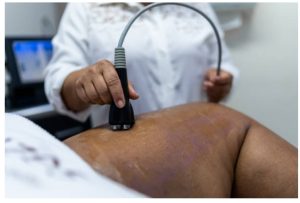
Hormone Replacement for Weight Loss: Is it an Effective Strategy?
Hormone replacement therapy (HRT) has been a popular approach to manage the symptoms of menopause in women. The treatment involves supplementing the body with hormones that decline during menopause, such as estrogen and progesterone. However, some women have used HRT as a weight loss strategy, believing that it could help them shed pounds. But is hormone replacement therapy effective for weight loss? In this article, we will explore the research on HRT and weight loss.
What is Hormone Replacement Therapy?
Hormone replacement therapy is a treatment that involves taking hormones to supplement the body’s declining hormone levels. In menopause, women experience a decrease in estrogen and progesterone, which can cause symptoms such as hot flashes, night sweats, and vaginal dryness. HRT can relieve these symptoms by replacing the lost hormones.
HRT can be administered in different forms, such as pills, patches, gels, creams, and injections. The type of HRT and the dose will depend on the individual’s symptoms and medical history.
Certainly! Hormone replacement therapy (HRT) is a medical treatment that involves supplementing the body with hormones that decline during menopause, such as estrogen and progesterone. The aim of HRT is to relieve menopausal symptoms such as hot flashes, night sweats, and vaginal dryness.
While some studies have suggested that HRT may help women lose weight, the evidence is mixed, and weight loss should not be the primary reason for using HRT. HRT can have risks and side effects, and the decision to use HRT should be made in consultation with a healthcare provider.
The risks of HRT can include an increased risk of certain health conditions, such as breast cancer, blood clots, and stroke. The risk of these conditions may vary depending on the type of HRT, the dose, and the individual’s medical history. HRT can also cause side effects such as bloating, breast tenderness, headaches, and mood changes.
HRT can be administered in different forms, such as pills, patches, gels, creams, and injections. The type of HRT and the dose will depend on the individual’s symptoms and medical history.
In summary, while HRT may offer some benefits for women experiencing menopausal symptoms, weight loss should not be the primary reason for using HRT. Women who are considering HRT should discuss the potential risks and benefits with their healthcare provider to determine if the treatment is right for them.
Hormone Replacement Therapy and Weight Loss

Some women have used HRT as a weight loss strategy, believing that the treatment could help them lose weight. However, the evidence on the effectiveness of HRT for weight loss is mixed.
Some studies have suggested that HRT may help women lose weight, particularly in the abdominal area. One study published in the Journal of Women’s Health found that women who took estrogen and progesterone for two years lost an average of 2.2 pounds, while those who took a placebo gained an average of 5.7 pounds. The study also found that women who took HRT had a reduction in belly fat.
Another study published in the International Journal of Obesity found that postmenopausal women who took HRT had a lower body mass index (BMI) than those who did not take HRT. The study suggested that HRT could help women maintain a healthy weight after menopause.
However, other studies have found no significant difference in weight loss between women who took HRT and those who did not. A study published in the New England Journal of Medicine found that women who took estrogen and progesterone for five years did not experience significant weight loss compared to those who took a placebo.
It is important to note that HRT is not a weight loss drug and should not be used solely for weight loss purposes. HRT is a medical treatment that should be prescribed by a healthcare provider to manage menopausal symptoms. While weight loss may be a potential benefit of HRT, it is not guaranteed.
Risks and Side Effects of Hormone Replacement Therapy
HRT is not without risks and side effects. The treatment can increase the risk of certain health conditions, such as breast cancer, blood clots, and stroke. The risk of these conditions may vary depending on the type of HRT, the dose, and the individual’s medical history.
HRT can also cause side effects such as bloating, breast tenderness, headaches, and mood changes. Women who are considering HRT should discuss the potential risks and benefits with their healthcare provider.
FAQs on Hormone Replacement for Weight Loss

Will hormone replacement help me lose weight?
While some studies have suggested that hormone replacement therapy (HRT) may help women lose weight, the evidence is mixed, and weight loss should not be the primary reason for using HRT. HRT is a medical treatment that should be prescribed by a healthcare provider to manage menopausal symptoms. While weight loss may be a potential benefit of HRT, it is not guaranteed.
Will estrogen replacement help me lose weight?
Estrogen replacement therapy (ERT) is a type of HRT that involves supplementing the body with estrogen. Some studies have suggested that ERT may help women lose weight, but the evidence is mixed, and weight loss should not be the primary reason for using ERT. ERT is a medical treatment that should be prescribed by a healthcare provider to manage menopausal symptoms.
How can I activate my hormones to lose weight?
While hormones can play a role in weight management, there is no specific way to “activate” hormones to lose weight. Maintaining a healthy lifestyle with regular exercise, a balanced diet, and good sleep habits can help support hormonal balance and promote weight loss.
How much weight can you lose with HRT?
Weight loss is not the primary goal of HRT. While some studies have suggested that HRT may help women lose weight, the evidence is mixed, and weight loss should not be the primary reason for using HRT. The amount of weight that a woman may lose with HRT will vary depending on the individual’s medical history, type of HRT, and other factors. Women who are considering HRT should discuss the potential risks and benefits with their healthcare provider.
Can hormone replacement therapy (HRT) help me lose weight?
A: While some studies have suggested that HRT may help women lose weight, the evidence is mixed, and weight loss should not be the primary reason for using HRT. HRT is a medical treatment that should be prescribed by a healthcare provider to manage menopausal symptoms. While weight loss may be a potential benefit of HRT, it is not guaranteed.
How does hormone replacement therapy work?
Hormone replacement therapy involves supplementing the body with hormones that decline during menopause, such as estrogen and progesterone. HRT can relieve symptoms such as hot flashes, night sweats, and vaginal dryness.
What are the risks of hormone replacement therapy?
HRT is not without risks and side effects. The treatment can increase the risk of certain health conditions, such as breast cancer, blood clots, and stroke. The risk of these conditions may vary depending on the type of HRT, the dose, and the individual’s medical history. HRT can also cause side effects such as bloating, breast tenderness, headaches, and mood changes.
What are the different types of hormone replacement therapy?
HRT can be administered in different forms, such as pills, patches, gels, creams, and injections. The type of HRT and the dose will depend on the individual’s symptoms and medical history.
Can men use hormone replacement therapy for weight loss?
While hormone replacement therapy is commonly used to manage menopausal symptoms in women, it is not typically used for weight loss in men.
Is hormone replacement therapy safe?
HRT can be safe for some women, but it is not without risks and side effects. Women who are considering HRT should discuss the potential risks and benefits with their healthcare provider to determine if the treatment is right for them.
Can hormone replacement therapy help me maintain a healthy weight?
Some studies have suggested that HRT could help postmenopausal women maintain a healthy weight. However, weight loss should not be the primary reason for using HRT, and the evidence on the effectiveness of HRT for weight loss is mixed.
Conclusion
Hormone replacement therapy is a medical treatment that can be effective for managing menopausal symptoms. While some studies have suggested that HRT may help women lose weight, the evidence is mixed, and weight loss should not be the primary reason for using HRT. Women who are considering HRT should discuss the potential risks and benefits with their healthcare provider to determine if the treatment is right for them.




